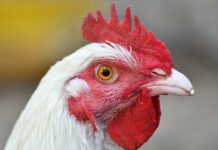“Women and Little Kids on the farm typically did the feeding and watering of the animals, but milking was generally considered to be the lot of the men and the Big Kids. In our family, the milking was done in the cow barn on our aunt and uncle’s farm across the road, because that’s where all of the cows from both families were sheltered. Every farmer knew that to maintain their production rate, cows had to be milked pretty much at the same time every morning and evening. Milking was a duty that permitted no days off. There were no exceptions.”
— Mildred Armstrong Kalish,
Little Heathens: Hard Times and
High Spirits on and Iowa Farm
during the Great Depression
There were a couple of rules on our family farm and one of them had to do with milking at the same time each morning and evening, no matter what. The other had to do with behavior in the milking parlor. Happy, calm, contented cows give more milk than those handled with roughness or exposed to brash behavior.
In our family, the girls did the milking. When my older sisters grew up and moved away, the twice-daily milking fell to me. I usually worked with Paul, a hired hand who was more like family than hired help and he often teased me for treating the cows like pets.
“Next thing ya know, you are gonna be putting bows in their hair,” he often said to pester me.
Teasing
Paul, who was a lifelong friend and classmate, always ate breakfast with us. After he placed his order by saying something silly like, “Today I will have three and a half eggs,” the teasing would begin.
“Stan, you wanna hear what this crazy daughter of yours did this morning?” And then the stories would begin. Paul told whoppers, the gist of which were designed to accuse me of pampering the calm cows and trying to break the feisty cows with a big dose of kindness.
One morning, standing in our straight-eight stanchion milking parlor, I was pinned between two stubborn first-calf heifers. As I tried to pry my way out from between the two of them, one gave me a good kick which I managed to avoid. When her hoof came down, though, it landed squarely on my foot.
She would not budge. My size five foot was being pressed down in to oblivion by 2-ton Tillie. I called to Paul to help me get Tillie to move. “She’s on my foot!” I said over the noise of the milking compressor.
“That’s great!” Paul said with glee. “Isn’t that the circus act that you’ve been trying to teach her ever since she freshened?”
No sympathy
Paul pried the two young, stubborn heifers apart and I was sprung to freedom. As I limped around the rest of the day, Paul showed no sympathy. “You baby them too much and they know they can push you around,” was his parting shot.
They may have pushed me around, but I took pride in pushing those cows to peak production. Dad was amazed when I had to take some time off to perform the lead part in the school play. Milk production clearly plummeted. For all of the ribbing I took, I knew my cows. When I was away, the fill-in workers were just a bit too rough and too gruff and production suffered.
Names of the cows
Another big point of contention had to do with the names of the cows. DHIA required numbers rather than names for identification, which just irked me to no end. “How would you like to be called by a number?” was my only real argument, but I argued with fervor.
Just a few months ago, a friend told me she had just heard a radio report saying a recent study proved cows with names gave more milk than cows identified strictly with numbers. Oh, how I wanted to be able to share that golden nugget of information with Dad!
Notebooks kept in the milking parlor, which I have held on to over all these years, reflects this on-going argument. Paul writes, “Number 55 off feed. Keep an eye on her.” My handwriting appears beside it: “She prefers to be called Alice.”
Dad, who always managed to have the final word, no matter what the argument, wrote in his decidedly unique handwriting under our scribbles, “Whisper in her ear when you grain her tonight, Paul, and call her Alice if that’s what it takes. She’s been our top producer for two years running. Let’s keep it that way.”
Victory
Ah, victory is sweet, even 30 years later, reading of my win in an old, splattered notebook!












